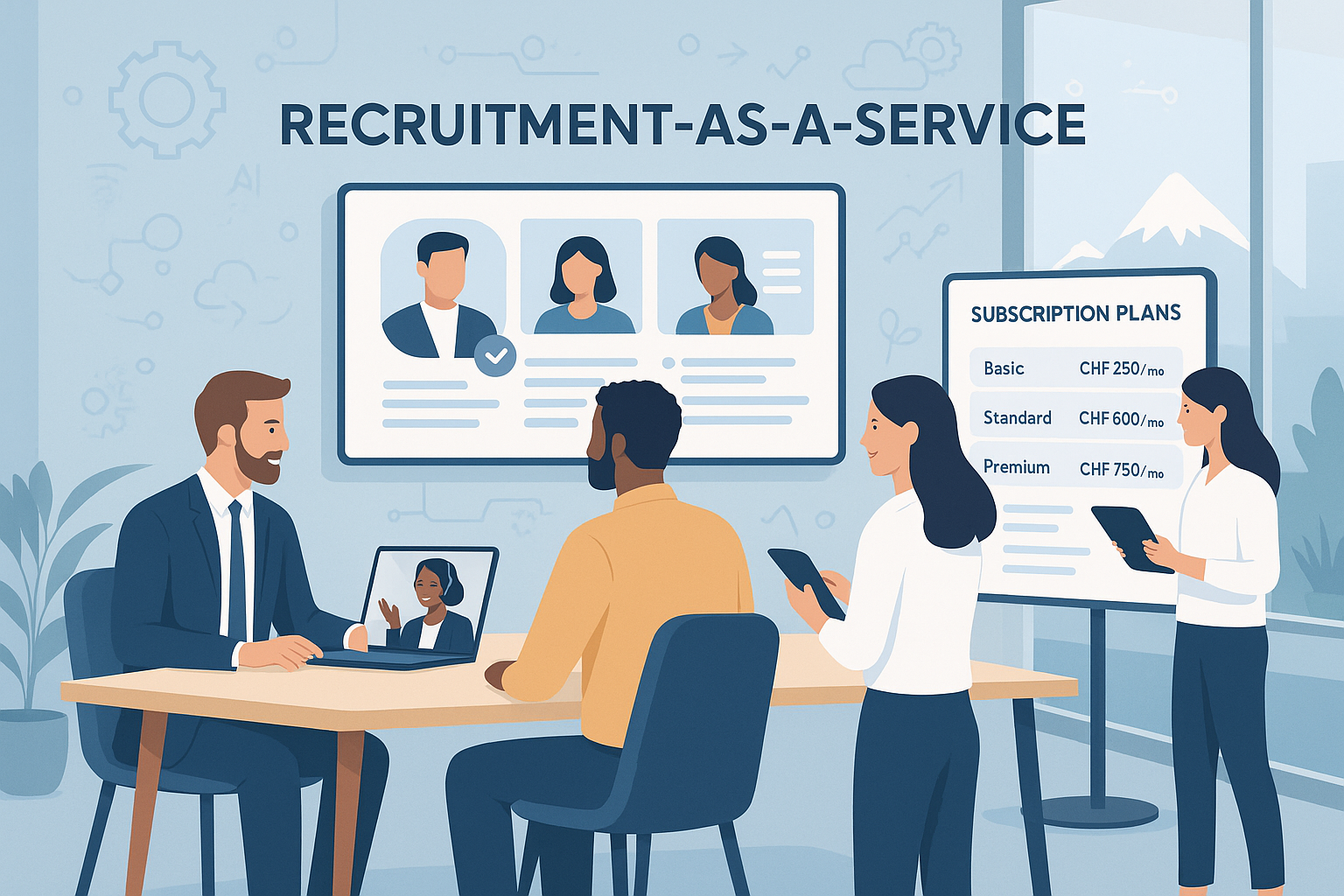Designing a Subscription-Based Model for Recruitment : Lessons from the "As-a-Service" Economy
This thesis explores how a modular, subscription-based Recruitment-as-a-Service (RaaS) model can offer Swiss startups and SMEs a scalable, flexible alternative to traditional hiring, combining tech, human expertise, and recurring value for both clients and recruiters.

Topic
My Master Thesis investigates how a Recruitment-as-a-Service (RaaS) model can be designed to meet the evolving hiring needs of Swiss startups and SMEs. Drawing on the principles of the subscription economy, the research explores whether recruitment can be offered as a scalable, flexible, and affordable service rather than as a one-off transaction. The study proposes a modular and lifecycle-aligned recruitment solution that combines digital tools, human expertise, and transparent pricing. It aims to support early-stage companies lacking internal HR resources while enabling independent recruiters to establish more sustainable business models through recurring revenue streams and ongoing client engagement.
Relevance
Recruitment remains a major bottleneck for startups and SMEs in Switzerland, particularly due to budget constraints, limited HR infrastructure, and fluctuating hiring needs. At the same time, traditional recruitment agencies operate with rigid pricing models and a transactional mindset that does not match the agility of early-stage businesses. With the rise of the subscription economy in sectors like software, media, and logistics, this thesis investigates whether recruitment can also evolve into a flexible, service-based model. The research is particularly relevant for independent HR consultants and digital service designers seeking to align talent acquisition with today’s business realities.
Results
The study identifies clear market potential for a hybrid RaaS model that blends the scalability of digital platforms with the relational value of human support. Interviewees emphasized the need for cost-effective, modular recruitment services that align with the startup lifecycle. Automation tools were accepted for administrative tasks but human oversight remained essential for candidate evaluation and relationship-building. The model’s flexibility, tiered pricing, and ability to act as a strategic partner were consistently valued by both HR professionals and startup advisors. The research validates the RaaS concept as a credible alternative to traditional agencies, particularly for resource-constrained and fast-scaling firms.
Implications for practitioners
- Subscription-based recruitment services must offer modularity, transparency, and clear value.
- Combining automation with human interaction builds both efficiency and trust.
- Partnering with VCs, accelerators, or SaaS platforms can help scale RaaS models.
- Recruitment services should align with business stages, allowing companies to scale up support as they grow.
Methods
The research used a qualitative approach based on the scientific model development framework (Zellweger et al.). Ten semi-structured interviews were conducted with HR professionals and startup ecosystem advisors in Switzerland. Data were thematically analyzed and the Business Model Canvas (BMC) and Value Proposition Canvas (VPC) served as coding frameworks, complemented by a category for competitive landscape insights. This methodology enabled the co-creation of a modular service blueprint tailored to startup realities. Data were stored in the OSF repository under private access settings and were not anonymized, as public sharing was not intended.
